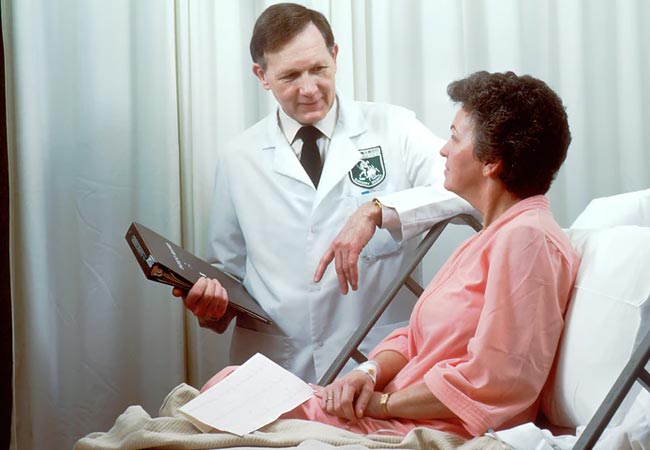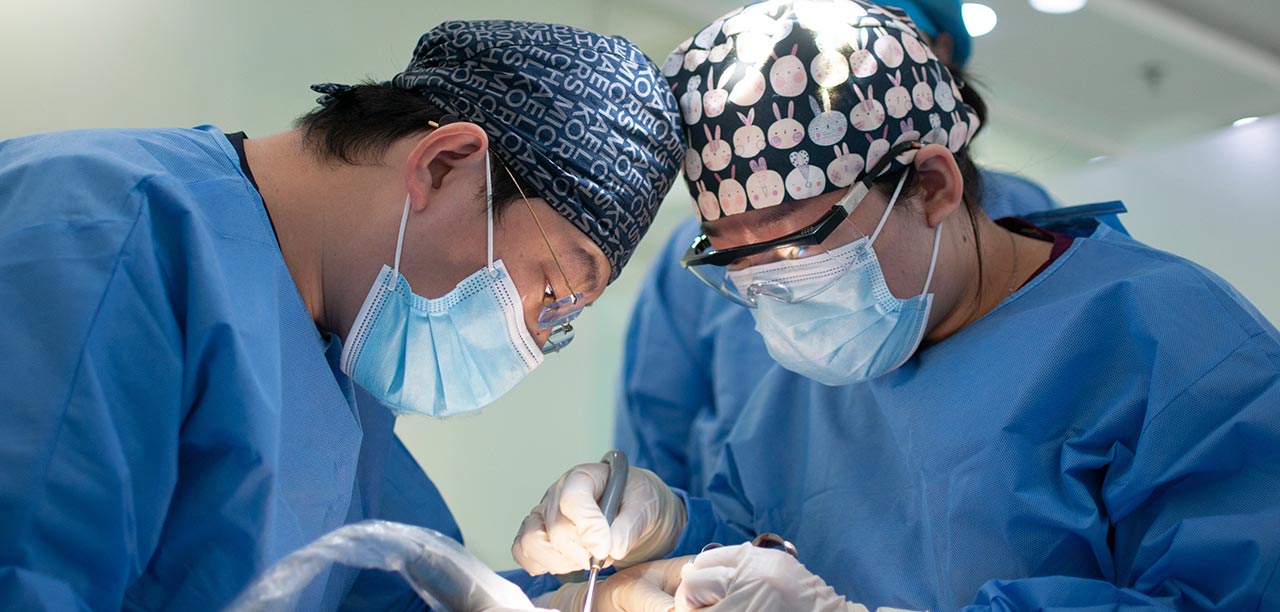Preparing for total knee replacement surgery is something that many people suffering from arthritis will unfortunately have to do. There are many knee replacement surgery considerations you will have to weigh up before making a decision, as well as knowing what to expect after knee replacement surgery to ensure it has the greatest impact on your overall well being. This operation is one of the many treatment options available which relate to the knee joint which your osteoarthritis may have damaged due to a breakdown of joint cartilage and the underlying bone.
Your doctor may recommend this type of surgery if other treatments, such as medicine and ongoing physical therapy, have not been able to offer the pain relief you want on a day to day basis. When it comes to the truth about knee replacement surgery, it is a procedure whereby the surgeon will remove the damaged cartilage and bone before implanting an artificial joint, typically made of metal, plastic, and other synthetic materials that will perform the job of a natural knee joint.
According to research undertaken by the American Academy of Orthopaedic Surgeons (AAOS), over 90 percent of people who have a total knee replacement will have significantly reduced pain following the operation, as well as a greater ability to perform daily tasks that previously would have been painful.
As with any surgical procedure, knee replacement surgery carries several risks associated with it. These can range from infections that occur during the operation to blood clots that manifest during the knee replacement surgery recovery time. However, this research also highlights that over 600,000 procedures take place over a typical year in the United States, of which less than 2% resulting in serious complications as a result of the procedure.
So, what exactly do you need to be aware of when preparing for total knee replacement surgery?
.jpg)
Tips To Follow Before Total Knee Replacement Surgery
As previously mentioned, total knee replacement surgery is an increasingly common procedure for people of all ages, and these numbers are only expected to continue rising as the years go by. However, this doesn’t mean that you should be considering a total knee replacement as your first option to help with osteoarthritis, physical therapy and arthritis self-management program such as that offered by MyArthritisRx, need to be considered first when looking to alleviate pain. For some people though, knee replacement surgery is the final option to help improve their quality of life, but while the surgery is important, so is what you do to prepare for it. Here are some tips you should follow before undergoing knee replacement surgery.
Plan Ahead: You can never be too prepared or do too much planning ahead of this surgical procedure. Even before a date has been set, consider how this operation will affect your life in all conceivable ways. Knee replacement surgery recovery time will be a long process and it will not be an overnight fix. Things may be particularly stressful after joint replacement for a few months so anything you can in preparation to make this process easier and speed up recovery time needs to be done.
Look To Improve Your Fitness: If possible, look to get into better physical shape and improve your overall fitness before your surgery. This will help reduce recovery times and you can talk with your doctor or physical therapists about which exercises you should be doing ahead of the operation. Working on the strength in your arms and upper body will make it easier for you to use crutches or a walker while losing weight will in turn lessen the stress on your knees, all aiding recovery.
Prepare Living Arrangements: One of the main preparations you will need to make relates to your living space. You should look to move things in your house to make it easier to get around when less mobile, even setting up a temporary bedroom on the first floor to make it a simpler process. Remove as much clutter as you can to move around with crutches or a walker and look to install safety rails in the bathroom. Everything you need for those first few weeks of recovery needs to be within easy reach of you when you need it.
Ask For Help: Recovery should not be viewed as a solo challenge because you are going to need help while you recover. If you do happen to live on your own, see if there are relatives or close friends who stay to provide support for the short period of time you will need it. See if neighbors or friends can help with simple tasks you will struggle, and even something as simple as batch cooking meals and freezing them will make the process of coming out of hospital much easier.

Precautions Following A Total Knee Replacement
The best way to ensure a positive outcome is to follow the surgeon’s instructions. Don’t be afraid to ask any questions, no matter how simple or stupid they may seems regarding caring for your new knee. Having all the information is the most important thing. The following tips should help prevent or reduce common knee replacement complications:
Slow Down: Doctors will look to encourage people to start using their new knee as soon as possible following surgery. However, don’t overdo it. While it’s tempting to try and get up and about immediately, it can take 3 to 6 weeks before a person can return to normal activities, and this includes climbing stairs and driving. You don’t want to rush things and cause more problems for yourself.
Be Active: However, staying active is still crucial to a good recovery. It is essential to get out of bed and move around regularly as well as to follow the exercises that the doctor or trained physical therapist recommends. This is to help regain movement in their knee, but also to reduce the risk of blood clots forming and creating another dangerous situation.
Ice The Knee: Part of your recovery will likely involve icing the knee regularly. Wrapping an ice pack in a soft cloth and holding it on the knee can help to bring any swelling down and reduce pain in the first few days following surgery. It’s also advised to elevate the knee by propping it up on a couple of pillows to help with both recovery and with swelling.
Clean The Wound: The surgeon will give instructions on how to care for the wound after the knee replacement surgery. Keeping the area clean is a critical part of the process to help prevent infection leading to further treatment being needed. If you are worried about this or have difficulty doing it, get with this. It is vital and skipping or avoiding it will only cause more problems and harm.
Final Thoughts
Before deciding on knee replacement surgery, people may wish to consider other treatments that can relieve the pain. For some, this could be using a stick or a walker while others might look to make improvements to their diet and weight through exercise to reduce the risk of osteoarthritis developing. Total knee replacement should be viewed as a last resort once all other options have been tried, and it might even be worth considering a partial knee replacement beforehand. Whatever you are doing, please ensure it is all done with consultation from doctors, surgeons, and arthritis experts before making a final decision.





